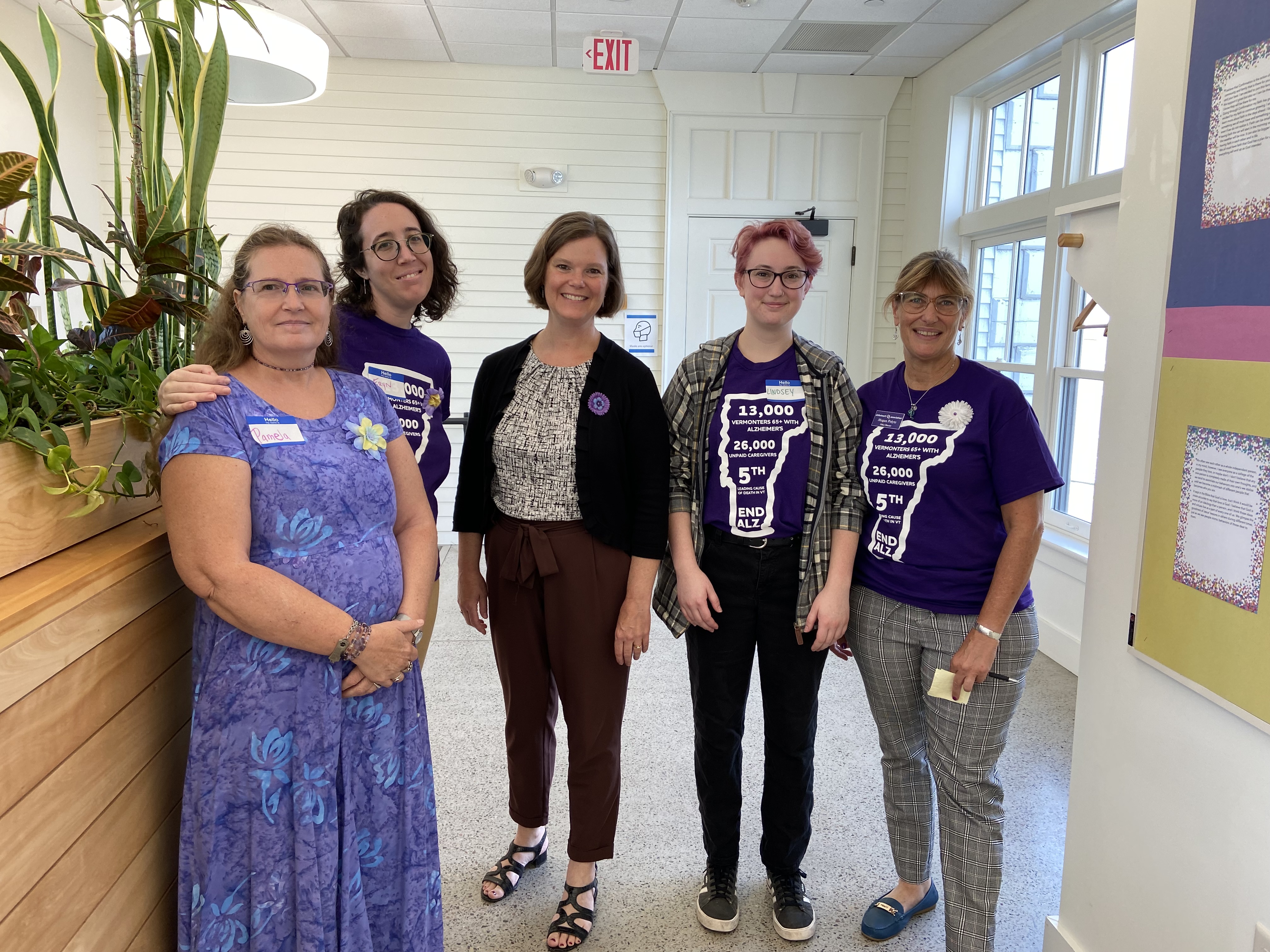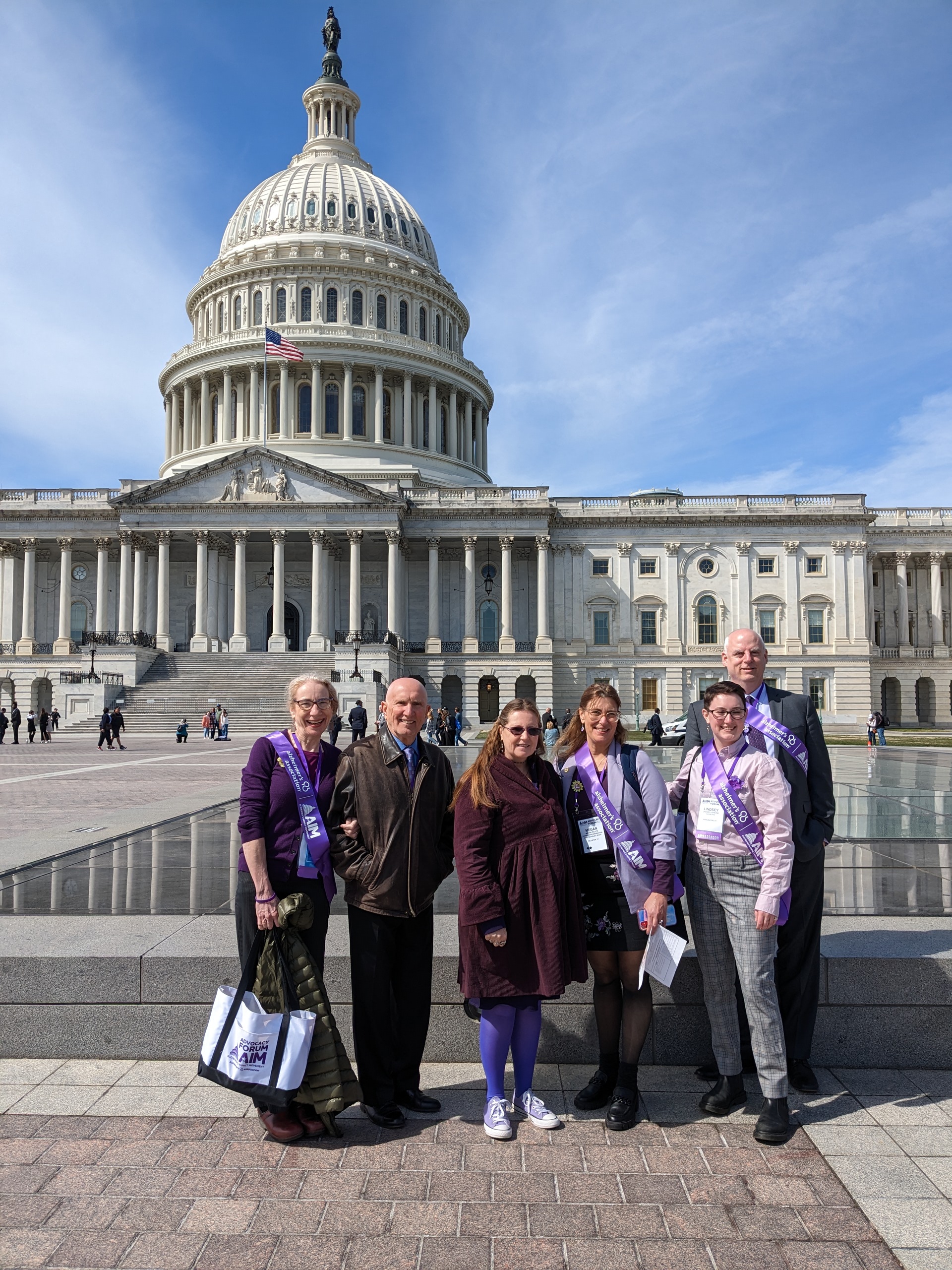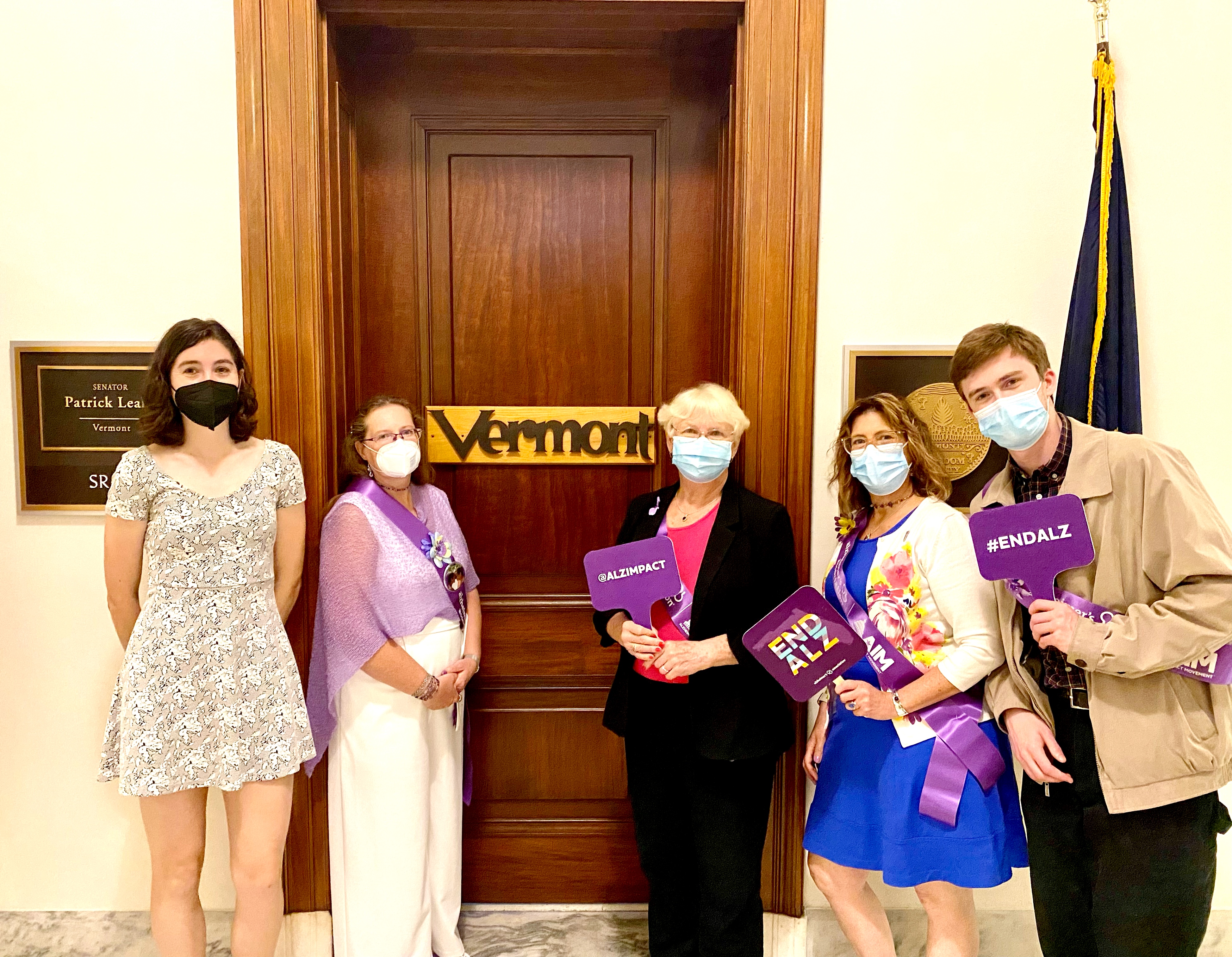Each month, we’re featuring an advocate who engages with policymakers to ensure priorities that improve the lives of people impacted by Alzheimer’s and all other dementia remain top-of-mind in Congress.
Pamela Smith, of Middlebury, Vermont, was 54 years old when she was diagnosed with younger-onset Alzheimer’s. After enduring years of frustration before her diagnosis and then processing what it would mean for her and her loved ones, Pamela decided to take action to advocate for herself and others living with the disease.
Before her diagnosis, Pamela was seeing warning signs and knew something was wrong. She was losing things more frequently and having trouble remembering details at work, needing to take thorough notes to know what transpired during meetings. Over time, note-taking became difficult and time-consuming as her spelling and ability to formulate sentences deteriorated.
Pamela shared her concerns with her doctor only to have these issues attributed to other causes: depression, anxiety, poor sleep, chronic pain, stress, and even menopause.
“It felt like my doctor was giving me everything under the sun, but no one mentioned the possibility of dementia,” Pamela said. “I was given a new treatment every three months, but nothing stopped the progression of memory problems, losing time, and losing things.”
One day at work, Pamela broke down while struggling to complete a task and called her doctor’s office in tears. The next day she saw one of her doctor’s partners, who ordered blood tests, cognitive testing, and an MRI and referred her to a neurologist. Pamela was diagnosed with younger-onset Alzheimer’s in 2020.
Pamela was most frustrated by the years it took to get a proper diagnosis. “By the time the diagnosis came, I just wanted an answer that made sense, any answer,” said Pamela.
During the ongoing isolation of the COVID pandemic and with her career ending due to her diagnosis, Pamela experienced depression. She knew she had to make a change. Pamela called the Alzheimer’s Association’s 24/7 Helpline looking for support services in her area.
Soon after this outreach, she decided to raise her voice as an advocate. With a career working in community mental health, including 10 years in developmental services, 18 years as a crisis intervention counselor, and 10 years as a therapist for children, adolescents and adults, Pamela has long recognized the importance of advocacy.
“I view my advocacy work as a continuation of my career that I had to leave at least 12 years before I anticipated,” Pamela said. “I can bring my life-long skills as an advocate to an issue that affects me along with millions of Americans.”
At the state level, Pamela has spoken to several committees of the Vermont Legislature and has served on the Older Vermonters Caucus and the Department of Disabilities, Aging, and Independent Living’s Home and Community-Based Services Workgroup as a person with lived experience. She continues to serve on Vermont’s Commission on Alzheimer’s Disease and Related Disorders.

At the federal level, Pamela has met with her state’s congressional leaders urging them to support federal policies to improve the lives of those impacted by Alzheimer’s and other dementia.

Pamela also serves as a member of the 2023-2024 Alzheimer’s Association National Early-Stage Advisory Group. She joined to use her voice to advocate for stronger support services for families affected by dementia — such as the BOLD Reauthorization Act — and connecting them with local resources that can help. She’s also focused on improving early detection, diagnosis, and support services for younger individuals experiencing memory and thinking problems — a process that proved so challenging for her.
“Following a dementia diagnosis, too many individuals and families are left on their own groping in the dark for services that can help them,” Pamela said. “I don’t want others to go through what I did to get a diagnosis. I lost two to three years searching for an answer. It was time I could have spent differently.”
To help individuals like Pamela living with the disease, Congress needs to take action to renew our nation’s commitment to the fight against Alzheimer’s. The bipartisan NAPA Reauthorization Act (S. 133 / H.R. 619) would reauthorize the National Alzheimer’s Project Act (NAPA) (P.L. 111-375), landmark legislation signed into law in 2011 that is set to expire soon.
“Social isolation can make us invisible, but I’ve chosen not to be invisible,” said Pamela. “Decision makers need to hear what it actually feels like to live with dementia and what the barriers are for us getting our needs met.”
Pamela will be attending the AIM Advocacy Forum in Washington, D.C., next month for her third time. Learn more about the Advocacy Forum and how you can get involved in advocacy year-round.
